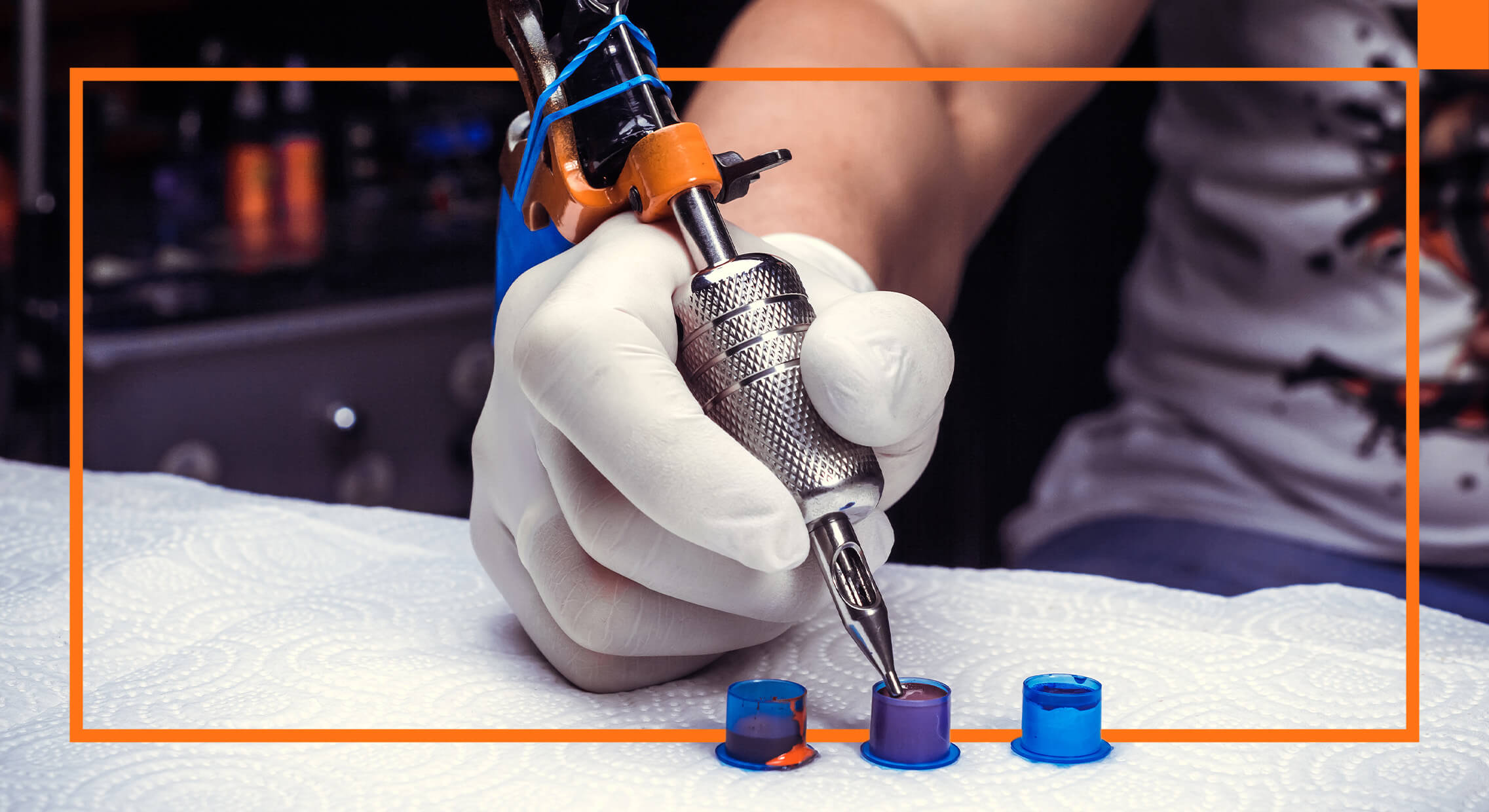
As an Amazon Associate, Modded gets commissions for purchases made through links in this post.
It’s not just you — tattoos have become the norm, from minimalist lines to large, intricate artwork. In fact, everywhere you look, it might seem like more people are rocking fresh ink than ever before.
According to a recent survey, about 30% of Americans have one or more tattoos — a 9% increase since 2012. Of this, 40% are between 18 and 34, while another 36% are over 55.
If you’ve thought about getting a tattoo but haven’t yet made a total commitment, you should consider these six factors first.
1. Impact on Career
Displaying a full sleeve while wearing a t-shirt or playing peek-a-boo with a back tattoo could be a conversation starter — however, your employer might not be impressed.
While society has generally grown to accept the popularity of tattoos, the workplace hasn’t exactly caught up. Take, for instance, that exciting job you’re after — 76% of people feel tattoos will hurt your chances of getting it. Additionally, 39% of managers believe visible ink reflects poorly on them.
Before booking an appointment, consider how getting a tattoo can negatively impact your career. It might be a matter of placing it in an area you can easily hide with clothing.
2. Pain Tolerance
Depending on who you ask, getting a tattoo might hurt — however, this is relative based on individual pain tolerances.
For many, tattoos usually feel like a prick or a bee sting. Specific placements might induce a throbbing knife-like pain, though.
Experienced tattoo artists often say that back tattoos hurt men more than women. Yet, women often complain about sharper pain in the wrist area than men. Ultimately, bony areas, such as the armpit or ribcage, are usually the most tender for getting a tattoo.
People with low pain tolerance should consider tattoo pain before getting one. Certain tricks — tattooing someplace with fewer nerve endings or using a topical lidocaine cream — can help ease some discomfort of getting a tattoo.
3. Meaning
Getting a tattoo is a big decision that requires careful thought. While some people may like getting inked for the heck of it, you might want to pick a design with deep, personal meaning for your first piece.
Maybe you lost a loved one or want to show your appreciation for a friend, family member or mentor. Tattoos are excellent for immortalizing someone’s legacy, whether with a portrait, birthday or initials.
You might also consider a special symbol, spirit animal, a favorite quote or paying homage to your hometown — some people use their area code to spotlight where they’re from.
Choosing a tattoo with meaning is better than getting something random. After all, a tattoo is permanent.
4. Experience Matters
If you’ve decided to go ahead with your tattoo, selecting an experienced tattoo artist is critical. Look for the following indicators of a good tattooist:
- Has a portfolio of work to show you
- Takes all the important health and safety precautions
- Always uses gloves during a session
- Refuses tattoos to people who are intoxicated or can’t consent
- Can create crisp, clean lines
- Can effectively pack color into the skin
- Creates original artwork
- Only takes on pieces they know they can do
Research your tattoo artists extensively before showing up to your session to ensure you’ve chosen the right tattooist for the job.
5. Health Implications
While risks are relatively slim, health implications are still possible with tattoos. For instance, tattoo colors could cause allergic reactions and rashes at the site — especially when using red, yellow, green and blue pigments — which could lead to other topical issues, such as infections or inflammation.
Proper tattoo equipment sanitation is also critical to avoid blood infections such as methicillin Staphylococcus aureus (MRSA) or hepatitis B and C.
Some doctors express concern about black ink, too — black ink contains high levels of benzo(a)pyrene that could potentially increase one’s cancer risk. Additionally, the more black ink someone has, the more it’ll hide changes in skin pigmentation — a common way people and doctors recognize the first signs of skin cancer.
6. Regret
Naturally, there’s the possibility that you’ll be of the 12% of people who regret their decision to get a tattoo.
The number of reasons why people regret their tattoos is never-ending. Perhaps they were too young or their tattoo no longer fits their lifestyle or interests. They might even have gone through a breakup with the person whose name they tattooed on their body, or the satisfaction has waned after some time.
In other cases, the tattoo artist may have done sloppy work or they regret their tattoo’s placement.
Although getting laser tattoo removal is possible, the process is often painful and expensive. The American Society of Plastic Surgeons estimates the average cost for laser tattoo removal at $423 — still, it could be more expensive depending on the size, color and number of sessions required.
Getting a Tattoo Is a Big Decision
Always consider the consequences of getting a tattoo. Once you have one, more likely than not, you’ll have it for the rest of your life. Of course, it could be precisely what you’ve always wanted — in which case, the question of whether or not to get a tattoo will be clear.
Stay up to date with the latest by subscribing to Modded Minute.
Author
Jack Shaw is a senior writer at Modded. Jack is an avid enthusiast for keeping up with personal health and enjoying nature. He has over five years of experience writing in the men's lifestyle niche, and has written extensively on topics of fitness, exploring the outdoors and men's interests. His writings have been featured in SportsEd TV, Love Inc., and Offroad Xtreme among many more publications.





